- Home
- Rick Mofina
Their Last Secret Page 10
Their Last Secret Read online
Page 10
“No, not right now,” she said.
Tug then went to his electronic dog door in the kitchen door that opened to the backyard and pool. It was activated by the chip in Tug’s collar, unlocking only when he was near. No other animals could pass through it. Tug exited and returned, signaling that he wanted to go for a walk.
“Sorry, buddy.” Kayla scratched his head, then filled his water bowl. She resumed eating yogurt at the counter while reflecting on the episode of Dateline she’d watched on YouTube last night. It was about people keeping secrets and was so interesting with its great detective work. Thinking of it fueled her deepening curiosity about Emma, which had arisen from their recent conversations about Emma’s life.
Do we really know her? Dad’s blinded by his love and busy with his work. It’s up to me to check things out.
Kayla got her laptop from her backpack and again searched for anything about people dying in an explosion and fire at Tony’s Diner in Beltsville, Maryland. Again, nothing came up.
Okay, not everything’s online. And it was, like, twenty years ago. But it’s kinda strange I found nothing.
Kayla finished her yogurt, thinking.
Dad says I have Mom’s journalistic genes. And, like him, Mom was a good investigative reporter.
Putting her empty cup in the recycle bin Kayla considered her situation.
Dad was out. Emma was out. She had the place to herself. She looked at Tug. He barked.
“What’s that, Scooby-Doo? You want to do some detective work?”
Tug barked again.
“Let’s see, where do we start?”
She considered the small office alcove in the kitchen, where Emma sometimes worked. Emma’s laptop was there. Kayla’s pulse kicked up as she went to it and considered trying to log in and search Emma’s files and emails. No, that wouldn’t work. She didn’t know Emma’s password and if she attempted to hack in she’d risk leaving a sign that she had tried.
Kayla looked in the drawer. Maybe Emma kept something in there.
Sifting through take-out menus, expired coupons, brochures, pens and other odds and ends, she found nothing.
I’m not sure what I’m looking for but I’ll know it when I find it.
She continued glancing around, thinking about the places and spaces that Emma used.
In the living room, there were drawers in the end tables that she and her dad never kept anything important in. Kayla checked there and found coasters and a few magazines. There was the credenza in the dining room. Kayla went through the drawers finding candles, candlestick holders, most of which her mom had bought. She checked cupboards, drawers and storage closets on the main floor—nothing unusual, nothing hidden away.
Upstairs, then.
With Tug panting happily behind her because she had his ball, Kayla checked the guest room, searching the dresser drawers, flipping through the extra sheets and pillow cases. She checked the closet. Not much but blankets and extra pillows.
She found nothing in the upstairs storage closets but bathroom and cleaning supplies.
She entered the bathroom her dad and Emma shared, fragrant with soaps and her dad’s cologne, going through the medicine cabinets, the cupboards, seeing nothing that came close to what she was seeking.
In the master bedroom she went through Emma’s dresser drawers, sifting through her underwear, socks and things. She poked through Emma’s jewelry boxes and accessory organizers.
Nothing there.
Kayla went to the big walk-in closet her dad and Emma shared, confident that if Emma was concealing something, this would be the place.
The air was pleasant with a hint of lavender, reminding Kayla of her mom. She blinked as she stared at Emma’s shirts, pants and dresses hanging where her mom’s clothes used to be.
Mom used to hide our Christmas presents in here.
The shelf above Emma’s clothes held stacks of boxes and books. Kayla took them down and looked through them one by one. Nothing but old bills, and records relating to Emma’s school counseling job in California. Replacing the boxes, she pulled down the books. All of them were textbooks about psychology, education, sociology and counseling. Kayla fanned through them.
Nothing.
The lower storage area contained shoes, boots and slippers. To one side was a set of luggage. Next to it was Emma’s large storage trunk with its metal clamps and latches, sitting on the hardwood floor atop an area rug. The rug was one Kayla’s mom got when they visited Arizona.
Kayla knelt before the trunk. It smelled nice, like wood. She ran her fingers along the metal latches. Was it locked? She pushed her thumbs against the latches. They snapped open.
Tug barked.
Someone was home.
Kayla’s heart beat faster. She closed the latches, then hurried downstairs.
Twenty
Winnipeg, Manitoba
2000
The New Dawn Sunrise Wellness Retreat, a complex of half a dozen low-rise buildings, sat on twenty tranquil, wooded acres at the city’s edge.
“Looks like a campus,” RCMP Corporal Frank Cullen said to his partner, Corporal Lorna Bryce, as they’d parked after the two-hour drive from Eternity.
Inside, they waited at the reception desk before they were met by Sharon Narski, a senior manager, who signed them in.
“What happened in Eternity is so horrible,” Narski said, escorting them to the administration offices.
Narski was a soft-spoken, petite woman. As they walked with her, Bryce threw a glance to Cullen, who followed her focus to Narski’s hand. The manager was fidgeting with her pen, a sign of nervous tension. They came to an empty reception area and a closed office door bearing the plate: Zelda Dupree, Executive Director.
Narski knocked gently.
“Come in,” said a woman’s voice.
They entered the spacious office with Narski introducing Cullen and Bryce. Dupree stood from behind her desk and came around to greet them. She was tall and poised with silver hair styled in a bouffant. She removed her glasses, letting them fall to a golden neck chain, shook hands with the Mounties and indicated the two chairs before her desk. Narski sat alone on a sofa against the wall.
“Such a tragedy for the Tullock family,” Dupree said. “Do you know who committed this unspeakable act?”
“We can’t discuss that aspect of the case, ma’am,” Cullen said. “We’re here to interview Victoria Tullock.”
“Of course.”
“But first.” Bryce opened her clipboard. “When you spoke with my colleague earlier on the phone, you’d indicated that Victoria has not left the facility here since she’s been a resident?”
“That’s not entirely correct.”
“What do you mean?”
“This is not a prison.” Dupree smiled. “The last time she was off-site was two weeks ago to shop at the mall nearby.”
“She walked out of here two weeks ago?”
“I wouldn’t put it that way. She can leave, but only with an escort. She has gone to local malls, movie theaters, but always under supervision. That’s our strict policy for residents in her situation.”
The gentle clicking of Narski’s pen behind them accelerated.
“And what exactly is her situation?” Cullen asked.
“Privacy laws forbid me from discussing Victoria’s case,” Dupree said. “What I can tell you is that we provide a range of residential treatment programs, involving therapy, education and myriad other services from our psychiatrists, social workers, counsellors and therapists.”
“Treatment for what, exactly?” Cullen asked.
“Addictions, alcohol and drug abuse, post-traumatic stress and mood and anxiety disorders.”
Bryce, who’d been taking notes, closed her clipboard. “Thank you. We’d like to talk to Victoria now.”
“Shar
on will escort you to her room,” Dupree said. “However, I have a request from her family. Her aunt and uncle wish to talk with you first.”
“They’re here?” Cullen asked.
“Yes. Mr. Tullock’s brother and his wife. They flew in from Vancouver to be with Victoria as soon as they were notified. Sharon will take you to them.”
* * *
Paul and Lynn Tullock sat at a table in an empty lounge with floor-to-ceiling windows that looked out onto a forest and stream. The couple appeared to be in their fifties. Paul sipped from a ceramic mug; Lynn tended to a Diet Coke. Their faces were etched with anguish and exhaustion when they looked up as Narski introduced them to Bryce and Cullen.
The investigators joined them at the table. Narski went to the far side of the lounge to the coffee station, out of earshot, giving them privacy.
“Did you find the person who killed my brother and his family?” Paul asked.
“I’m sorry, no arrests have been made yet,” Bryce said as she opened her clipboard to take notes.
“It’s early in the investigation,” Cullen added. “Can you think of anyone who would want to hurt your brother’s family?”
Lynn shook her head.
“Sergeant Sloan asked us that when we gave our statements to her over the phone,” Paul said.
“We just cannot comprehend what’s happened.” Lynn’s face crumpled. “Torrie’s the only survivor, that poor child.”
“Has she been told?” Bryce asked.
“Yes,” Paul said. “We’ll be going to Eternity soon to help plan the funerals.”
“It’s just not right,” Lynn said. “Torrie’s been ill and now this.”
“What do you mean by ill?” Bryce asked. “Why is she here?”
Lynn looked at Paul, then touched her eyes with a tissue, took a breath, then let it out. “When Torrie was younger, Connie thought she was different. She seemed bored, moody, easily angered, but also took up an interest in math, science and literature at an early age.”
“Wasn’t she nine when she was reading Shakespeare?” Paul said.
“Yes,” Lynn continued. “It all worried Connie, so she took her to psychologists, who assessed and tested her. Turned out Torrie’s IQ level was near genius. Then Torrie fell down the stairs and hurt her head. Ever since then Torrie’s had problems coping with life. She’s had breakdowns.”
“Breakdowns?” Bryce asked.
Paul added: “She would sometimes descend into what the people here call a dissociated state. Roy told me that Torrie thought she could walk through walls. At times she’d fly into wild, vengeful rages.”
“Vengeful?”
He nodded. “Roy and Connie didn’t understand what was happening. They were afraid Torrie would hurt someone, or herself. That’s why they brought her here for treatment, to help her so they could eventually bring her home.”
Bryce continued making notes. “Did Torrie ever harm anyone, or herself?” she asked.
Paul glanced at Bryce’s note-taking and shook his head. “No, nothing, thank God.”
“In fact,” Lynn said, “her treatment here was working. Torrie was getting well. So well that they were going to send her home in a few weeks and then—” She gasped for breath. “Oh Lord, that poor child.”
Paul put his arm around his wife and comforted her before the investigators thanked them and left with Narski.
* * *
As they followed Narski down the corridor of the section where Torrie resided, Bryce and Cullen were reminded of university dorms.
Only here all the doors were closed. No music or pot smell leaked into the hall. Instead, the air was soothing, quiet and calm.
They stopped at number 164, where Narski knocked softly. “Torrie, we have two visitors who need to talk to you.”
Seconds passed without a response.
Narski opened the door enough to stick her head in.
“Torrie, I’m going to let two new visitors in to see you.”
Narski retreated from the door, then nodded to the Mounties. “There’s a keypad intercom next to the light switch. Enter one six four when you’re done and I’ll escort you out.”
“Thanks,” Cullen said.
Narski opened the door wide, then left down the hall.
The investigators entered and closed the door behind them.
Torrie was seated at her desk, her back to them. They couldn’t see her face; her head was bent over her work and her long hair covered her face.
Bryce noticed the security camera above the door as she set a digital recorder on a bookshelf near Torrie and opened her notebook.
“Victoria, I’m Lorna Bryce and my partner is Frank Cullen. We’re so sorry for what’s happened.”
“Call me Torrie.”
“Torrie, we’re with the RCMP and we’d like to ask you some questions that may help us find the person, or persons, who hurt your family. Is that okay—do you want to help us?”
Torrie said nothing.
Cullen leaned his head to see that Torrie appeared to have a pencil in her hand and seemed consumed with writing or drawing.
“Torrie, it would really help if you talked to us,” Bryce said.
Torrie continued working without speaking.
“We need to know if you can think of anyone who would want to hurt your family.”
Torrie didn’t answer.
“Did your mom or dad ever mention to you anything about someone who’d want to hurt them?” Bryce asked.
No response.
For several long moments Bryce tried in vain to get Torrie to engage with them but it was futile. Bryce glanced at Cullen, indicating he should try.
“Don’t you want to help us?” Cullen asked.
“They’re all gone,” Torrie said.
Bryce shot a hopeful look to Cullen.
“I’m all alone now,” Torrie said as she continued working.
“You have your aunt and uncle, who love you and want to help you,” Cullen said.
“I’m not me,” Torrie said.
Cullen looked at Bryce with a question on his face.
“What do you mean?”
“I’m not me anymore.”
Torrie’s right arm shot straight back high into the air, gripping the paper she’d been working on, holding it out for Cullen.
He took the sheet, concern webbing across his face.
The pencil sketch showed the furious expression of a girl, her long black hair shooting out wildly in Medusa strands, her eyes narrowed, her mouth scowling with demonic rage.
Torrie then turned, keeping her head bent down low to her chest, her hair curtained over her face. She lifted her eyes, the whites glaring at the two officers as she spoke through gritted teeth.
“Tell me who you think killed my family!”
Twenty-One
Santa Ana, Orange County, California
Present day
Marisa Joyce Narmore’s green Ford Focus was parked in front of her town house and reflected in the driver’s side mirror of Emma’s SUV.
Emma had been watching it from the end of the block where she was parked in the opposite direction. She’d angled her mirror to capture Marisa’s front door, too, thankful to find the Ford there when she’d arrived nearly an hour ago.
She’d been watching and waiting.
It had been a couple of days since her first attempt to confront Marisa but she wouldn’t give up.
I’m going to find out who she is and why she’s threatening me.
Emma had told Ben and Kayla that she had meetings after school then had a few errands, that she didn’t know how late she’d be and for them to go ahead and have supper without her. Before leaving her school for her mission to Santa Ana, Emma visited the drama department to get something she’d need. Given her previous encounter
with the gun-holding creep at the door and the dog, she was uncertain what she would face a second time.
She wanted to be ready.
Emma accepted that her plan wasn’t the best strategy; that she was taking a risk. Her life with Ben and Kayla was at stake and she could feel time ticking down on her to do something.
A slight movement in the side mirror.
This could be it.
The front door of Marisa’s town house had opened and a woman stepped out with something in her hand. When she got to the sidewalk, Emma saw her dog on the leash: a beagle. They started walking.
She’s alone—good. Coming this way across the street. I’ve got to do this now. I might not get a second chance.
Emma slid the strap of her bag over her shoulder, got out, crossed the street and began walking toward the woman, growing more confident with each step. The woman was the same age, had the same build and hair color as the woman in the video. She had the pink sneakers. As Emma drew closer, she was certain it was her.
Do it now, head-on.
“Excuse me, do you have a moment?” Emma said.
The woman stopped; the dog pulled on the leash.
“You’re Marisa, right?”
A mix of surprise and confusion blossomed on her face. In that moment, up close, Emma tried to recognize the woman, who appeared to be the same age as she was. But nothing about her was familiar. The woman was a stranger.
“You’re Marisa Joyce Narmore, right?”
“Yes.”
“And that’s your green Ford Focus parked down the street?” Emma recited the plate number.
“Yes, what’s this about? Who are you?”
“This won’t take long. I need to show you something.” Emma held up her phone.
“I really don’t—”
“Please, it won’t take long. It’s important.”
Emma played the school security video on her phone, holding it for Marisa to view.
“See,” Emma said when it ended, “that’s you placing a note on my SUV where I work, isn’t it?”
The color drained from Marisa’s face and her dog barked.

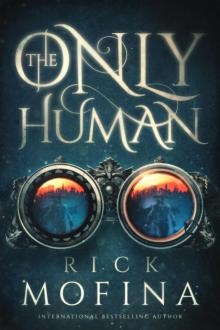 The Only Human
The Only Human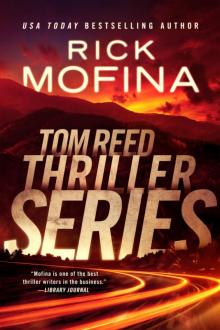 Tom Reed Thriller Series
Tom Reed Thriller Series![[Tom Reed and Walt Sydowski 04.0] No Way Back Read online](http://i1.bookreadfree.com/05/tom_reed_and_walt_sydowski_04_0_no_way_back_preview.jpg) [Tom Reed and Walt Sydowski 04.0] No Way Back
[Tom Reed and Walt Sydowski 04.0] No Way Back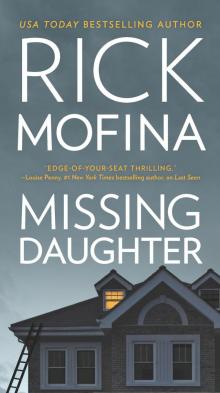 Missing Daughter
Missing Daughter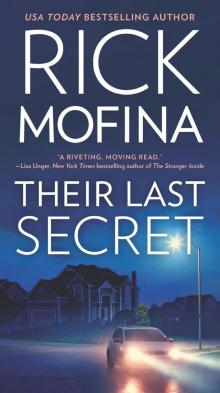 Their Last Secret
Their Last Secret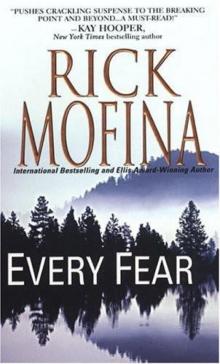 Jason Wade - 02 - Every Fear
Jason Wade - 02 - Every Fear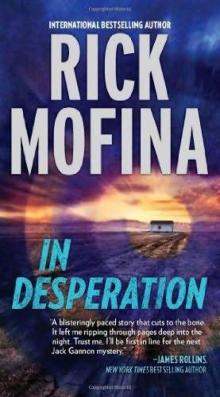 In Desperation
In Desperation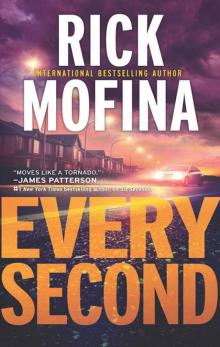 Every Second
Every Second Full Tilt
Full Tilt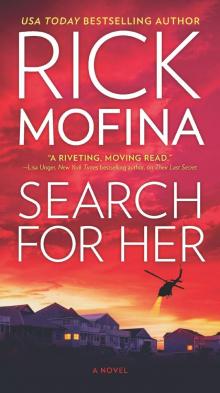 Search for Her
Search for Her The Last Pursuit
The Last Pursuit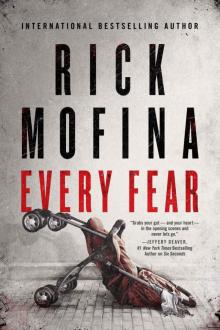 Every Fear
Every Fear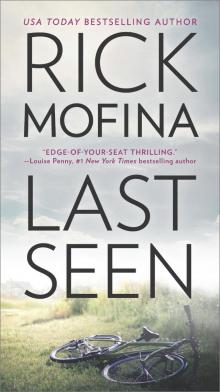 Last Seen
Last Seen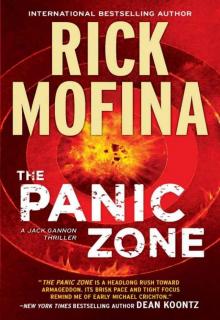 The Panic Zone
The Panic Zone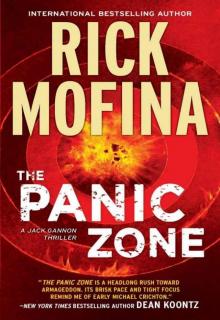 The Panic Zone jg-2
The Panic Zone jg-2 Free Fall
Free Fall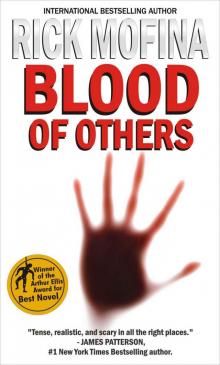 Blood of Others
Blood of Others![[Jason Wade 02.0] Every Fear Read online](http://i1.bookreadfree.com/i1/03/31/jason_wade_02_0_every_fear_preview.jpg) [Jason Wade 02.0] Every Fear
[Jason Wade 02.0] Every Fear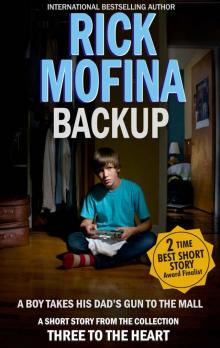 Backup
Backup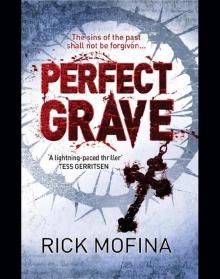 Perfect Grave
Perfect Grave Into the Dark
Into the Dark Whirlwind
Whirlwind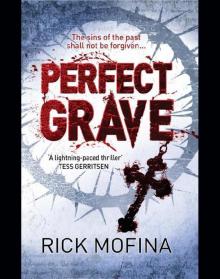 Perfect Grave jw-3
Perfect Grave jw-3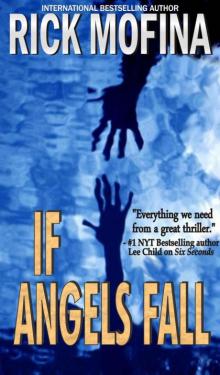 If Angels Fall (tom reed and walt sydowski)
If Angels Fall (tom reed and walt sydowski)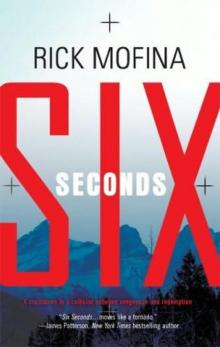 Six Seconds
Six Seconds If Angels Fall
If Angels Fall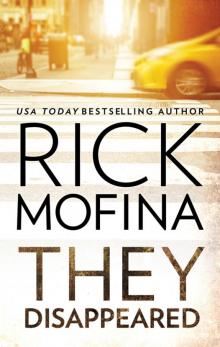 They Disappeared
They Disappeared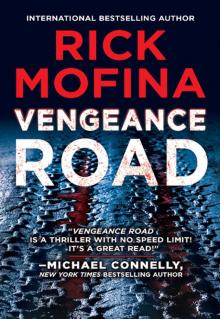 Vengeance Road
Vengeance Road Before Sunrise
Before Sunrise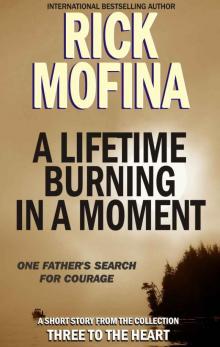 A Lifetime Burning in a Moment
A Lifetime Burning in a Moment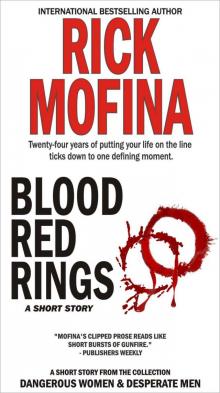 Blood Red Rings (Dangerous Women & Desperate Men)
Blood Red Rings (Dangerous Women & Desperate Men) As Long As We Both Shall Live (Dangerous Women & Desperate Men)
As Long As We Both Shall Live (Dangerous Women & Desperate Men)![[Tom Reed and Walt Sydowski 01.0] If Angels Fall Read online](http://i1.bookreadfree.com/i2/04/12/tom_reed_and_walt_sydowski_01_0_if_angels_fall_preview.jpg) [Tom Reed and Walt Sydowski 01.0] If Angels Fall
[Tom Reed and Walt Sydowski 01.0] If Angels Fall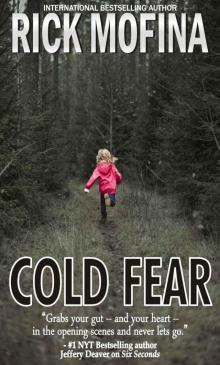 Cold Fear
Cold Fear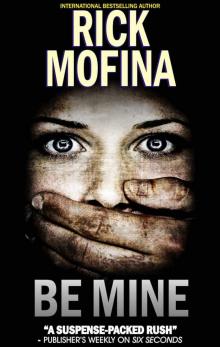 Be Mine
Be Mine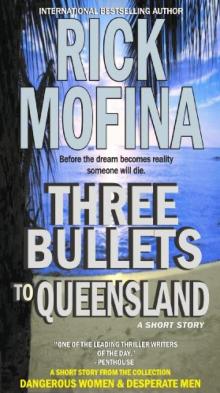 Three Bullets To Queensland
Three Bullets To Queensland